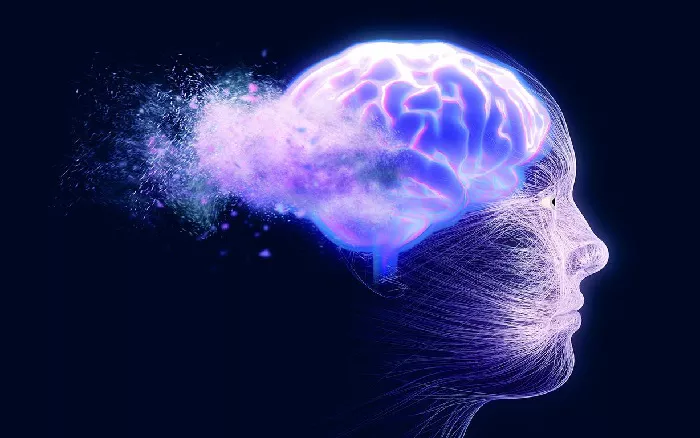Schizophrenia is one of the most complex mental health disorders. For years, researchers have debated whether it should be classified as a “brain disease.” The answer is not simple. While schizophrenia affects thoughts, emotions, and behavior, scientific evidence confirms that it also involves physical changes in the brain.
This article explores whether schizophrenia is truly a brain disease. We will examine brain structure, neurotransmitter imbalances, genetic factors, and how these contribute to schizophrenia symptoms. By the end, you will have a clear understanding of the relationship between schizophrenia and brain function.
What Is Schizophrenia
Schizophrenia is a chronic mental disorder. It affects how a person thinks, feels, and behaves. People with schizophrenia may experience:
- Hallucinations (hearing or seeing things that aren’t there)
- Delusions (strong false beliefs)
- Disorganized thinking (trouble organizing thoughts)
- Reduced emotional expression (flat affect)
- Cognitive difficulties (memory and attention problems)
Symptoms usually appear in late adolescence or early adulthood. The exact cause is still unknown, but research strongly suggests brain abnormalities play a key role.
Schizophrenia and Brain Structure: What Science Shows
Modern brain imaging techniques, such as MRI and PET scans, reveal structural differences in the brains of people with schizophrenia. These differences include:
Enlarged Ventricles
The ventricles are fluid-filled spaces in the brain. Studies show they are often larger in schizophrenia patients. This suggests a loss of brain tissue, which may affect cognitive functions.
Reduced Gray Matter
Gray matter contains most of the brain’s neurons. Research shows that people with schizophrenia tend to have less gray matter, especially in areas responsible for:
- Decision-making (prefrontal cortex)
- Memory (hippocampus)
- Emotional regulation (amygdala)
Abnormal White Matter Connections
White matter helps brain regions communicate. In schizophrenia, these connections may be weaker or disorganized. This could explain why people with schizophrenia struggle with logical thinking and perception.
Neurotransmitters and Schizophrenia: The Chemical Imbalance Theory
Brain chemicals, called neurotransmitters, play a major role in schizophrenia. The two most studied neurotransmitters are:
Dopamine Dysregulation
The dopamine hypothesis suggests that schizophrenia involves excessive dopamine activity in certain brain pathways. This may cause hallucinations and delusions. Antipsychotic drugs, which block dopamine, often reduce these symptoms.
Glutamate Deficiency
Glutamate is another key neurotransmitter. Low glutamate levels may contribute to cognitive and emotional symptoms. Some researchers believe dopamine and glutamate imbalances interact to produce schizophrenia symptoms.
Genetic Factors: Is Schizophrenia Inherited
Genetics play a significant role in schizophrenia. Studies show:
- If one identical twin has schizophrenia, the other has a 40-50% chance of developing it.
- Having a close relative with schizophrenia increases risk, but environmental factors also matter.
Scientists have identified multiple genes linked to schizophrenia. These genes affect brain development, neurotransmitter function, and synaptic connections. However, no single gene causes schizophrenia—it’s a combination of genetic and environmental influences.
Environmental Triggers and Brain Changes
While genetics matter, environmental factors can increase schizophrenia risk. These include:
- Prenatal infections (e.g., maternal flu during pregnancy)
- Childhood trauma (abuse or severe stress)
- Drug use (especially cannabis in adolescence)
- Urban upbringing (higher stress environments)
These factors may alter brain development, increasing vulnerability to schizophrenia.
Is Schizophrenia a Progressive Brain Disease
Some researchers believe schizophrenia is a neurodegenerative disorder, meaning brain changes worsen over time. Evidence includes:
- Gradual loss of gray matter in some patients
- Worsening symptoms without treatment
However, others argue that early intervention (medication, therapy) can slow or stop brain deterioration. This suggests schizophrenia is not purely degenerative but can be managed.
Treatment: Can Brain Changes Be Reversed
While schizophrenia cannot yet be cured, treatments help manage symptoms and improve brain function:
Antipsychotic Medications
These drugs regulate dopamine and sometimes glutamate. They reduce hallucinations and delusions but may have side effects.
Psychotherapy
Cognitive behavioral therapy (CBT) helps patients manage distorted thoughts and improve social skills.
Lifestyle Changes
Exercise, a healthy diet, and avoiding drugs can support brain health.
Early Intervention Programs
Detecting and treating schizophrenia early can prevent severe brain changes.
Conclusion
Schizophrenia is more than just a mental illness—it involves measurable brain changes. Abnormal brain structure, neurotransmitter imbalances, and genetic factors all contribute to the disorder. While environmental triggers play a role, the evidence strongly supports schizophrenia as a brain disease.
However, with proper treatment, many people with schizophrenia lead fulfilling lives. Ongoing research may uncover better ways to protect and heal the brain from this complex condition.
Related topics:
- What’s the Difference Between Psychosis and Schizophrenia?
- What Happens In The Brain With Schizophrenia?
- Can Schizophrenia Be Diagnosed In Childhood?


